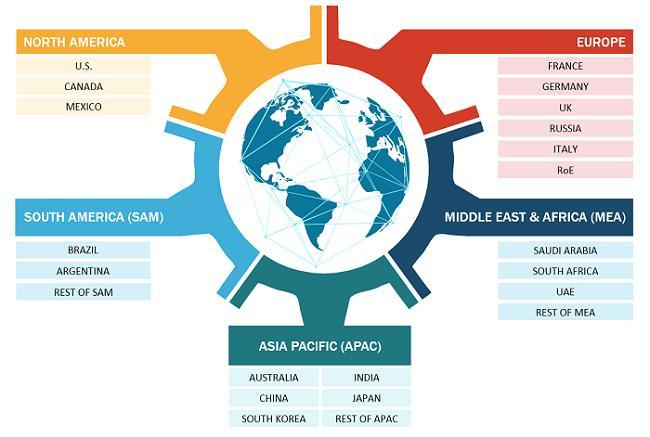Best Practices for Faster, Smarter Study Startup in Research

Every clinical trial begins with big goals, but the path to launch is rarely simple. Researchers, sponsors, and sites often find themselves caught between strict regulations, endless contracts, and shifting timelines. The excitement of starting a study can quickly turn into frustration when the process slows down.
What many teams discover is that the real challenge lies not in designing the trial, but in getting it underway. That is why studying a startup is critical in trials; it sets the pace for everything that follows. If this stage lags, the entire study timeline suffers, and in turn, patients wait longer for potentially life-changing treatments.
In this article, we'll look at the common hurdles in study startup and outline proven best practices to make the process faster, smarter, and more reliable.
Why the Study Startup Stage Matters
Starting a study is more than just paperwork and planning. It is the moment when a study's success or failure begins to take shape. While recruitment and data collection often get more attention, delays during startup can be just as damaging.
Moreover, this phase encompasses critical tasks, including regulatory approvals, ethics committee submissions, and site activations. Each step may look small on its own, but together, they can stretch timelines by weeks or even months. Therefore, paying close attention to startup activities is not optional; it is essential.
Here's the thing: when sponsors and sites treat startups as an afterthought, they risk:
-
Longer trial timelines that frustrate stakeholders.
-
Increased costs due to prolonged contracts or staff hours.
-
Slower patient access to new therapies.
Additionally, a robust startup process fosters trust among research partners and establishes clear expectations for efficiency and effectiveness. Teams that manage this phase effectively often find the rest of the trial moves more smoothly.
Common Roadblocks That Slow Progress
Every trial has its own challenges, but several recurring roadblocks emerge during the startup phase. You're not alone if your team struggles with these issues.
First, regulatory hurdles often cause delays. Approval processes vary across countries, and even within the same region, timelines can differ widely. This unpredictability creates frustration for sponsors trying to plan. Second, contract and budget negotiations can stretch on for weeks. Sites and sponsors may disagree on terms, which stalls progress. While legal review is necessary, lengthy negotiations often stem from unclear expectations upfront. Third, site selection mistakes add another layer of difficulty. When sites lack proper resources or experience, activation slows down. This not only affects timelines but also the quality of patient recruitment later.
To summarize, the most common hurdles include:
-
Regulatory approvals drag on longer than expected.
-
Complex budget and contract negotiations.
-
Inadequate site readiness or support.
Therefore, identifying these issues early allows teams to plan better solutions instead of reacting to problems later.
Building Stronger Site Partnerships
One of the smartest moves during startup is investing in site relationships. After all, sites are the backbone of any trial. When communication between sponsors and sites is weak, misunderstandings multiply. However, with clear communication, many problems can be avoided. Setting transparent expectations around contracts, budgets, and timelines enables both parties to work more efficiently.
In addition, sponsors should provide early training and support. Many delays come from sites that are eager but not fully equipped. Offering tools, templates, or guidance on documentation speeds up their readiness.
A few best practices for site collaboration include:
-
Hosting early kickoff calls to align expectations.
-
Sharing checklists for regulatory documents.
-
Providing dedicated contacts for quick resolution of issues.
Therefore, investing time upfront in building these partnerships pays off in reduced delays and smoother operations later in the trial.
Leveraging Technology for Faster Startup
Manual processes often slow everything down. Paper-based submissions, scattered email chains, and spreadsheets are still common in the study startup process. However, these outdated methods create bottlenecks.
Moreover, digital platforms facilitate the centralization of data, tracking of progress, and sharing of updates in real-time. By replacing slow manual tasks with automated workflows, teams save valuable days or weeks.
For example, electronic trial master files (eTMFs) allow teams to store and access documents instantly. Similarly, digital contract management tools reduce negotiation time by keeping all changes in one place.
Key benefits of technology include:
-
Faster document turnaround.
-
Improved visibility into trial progress.
-
Reduced human errors.
-
Easier collaboration between global teams.
On the other hand, introducing technology without proper training can initially slow down the process. Therefore, teams should pair technology adoption with hands-on support for users.
Regulatory Strategy: Staying Ahead of Approvals
Regulatory delays are one of the toughest hurdles in study startup. However, with a strong strategy, teams can reduce their impact.
First, start preparing submissions early. Waiting until the protocol is finalized often leads to unnecessary delays. Involving regulatory experts from the outset ensures that requirements are met more efficiently.
Additionally, creating a library of standard documents streamlines the process. Many agencies request similar forms, so having templates ready reduces the need for repetitive work.
Moreover, maintaining regular contact with regulators helps clarify expectations and ensure compliance. Rather than waiting for feedback, proactive communication can prevent long back-and-forth exchanges.
In short, regulatory planning is not about avoiding rules, but about anticipating them and staying prepared.
Using Data to Predict and Prevent Delays
Data plays a bigger role in study startup than many realize. With the right insights, teams can predict where delays are most likely to occur.
For instance, analyzing past trials reveals patterns in approval timelines, site activation, and contract negotiations. This historical data helps set realistic expectations and prepare backup plans.
Moreover, predictive analytics tools flag potential risks before they become full delays. If one site shows slower document turnaround, teams can allocate resources to support them earlier.
Therefore, data-driven planning is not just about tracking performance; it is about anticipating and preventing issues before they affect the timeline.
Practical Steps to Accelerate Startup
Speeding up startup does not mean cutting corners. It means organizing smarter. Here are some actionable steps that make a real difference:
-
Create a master timeline That Aligns tasks and deadlines across all stakeholders.
-
Standardize documents by using templates for contracts, consent forms, and budgets.
-
Prioritize communication: Hold weekly check-ins during early phases.
-
Assign ownership: Make sure each task has a clear responsible person.
-
Track progress visually: Dashboards and trackers keep everyone aligned.
Moreover, building a culture of accountability ensures these steps are followed consistently. Teams that adopt these habits often find their startup phase runs far more smoothly.
Conclusion
Study startup often feels like the longest part of a clinical trial, but with the right practices, it does not have to be. By focusing on site partnerships, technology adoption, regulatory planning, and smart use of data, research teams can avoid unnecessary delays and move trials forward with greater confidence.
If you want to see how technology can transform this process, discover Syncora's clinical trial management system, designed to simplify startup and keep your studies on track.






